Tehran Sanctions EU, UK Individuals, Entities In Retaliation
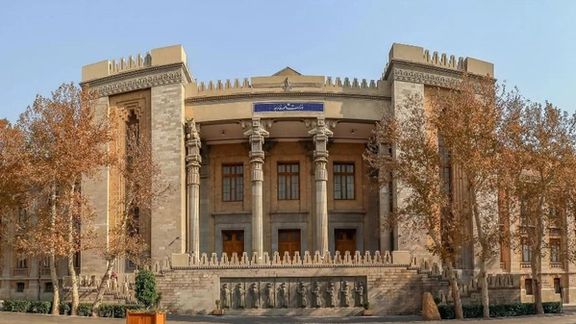
Iran says it has designated over 30 European and British individuals and entities in response to the recent sanctions against its officials over the crackdown on anti-government protests.

Iran says it has designated over 30 European and British individuals and entities in response to the recent sanctions against its officials over the crackdown on anti-government protests.
The foreign ministry announced in a statement on Wednesday that the targeted EU individuals and entities are targeted “for interference in domestic affairs of the Islamic Republic of Iran and fomenting violence and unrest in Iran.”
Those targeted include Britain’s attorney general and army chief of staff, several European parliamentarians and European military officials.
The French scholar Bernard-Henri Levy and three senior staffers at the French satirical magazine Charlie Hebdo, which recently published a series of cartoons ridiculing Iran’s clerical rulers have been designated by Tehran.
The sanctions would ban the individuals from travelling to Iran and their bank accounts will be blocked. Those targeted are unlikely to have any property in the Islamic Republic, but the symbolic move will confiscate if there were any.
The European Union on Monday imposed sanctions on more than 30 Iranian officials and organizations, including units of the powerful Revolutionary Guards, blaming them for a "brutal" crackdown on unrest and other human rights abuses.
The United States and Britain also issued new sanctions against Iran, reflecting a deterioration in the West's already dire relations with Tehran.
The sanctions are the latest response to Iran's deadly clampdown on unrest after the death of young Iranian Kurdish woman Mahsa Amini in morality police custody in September.
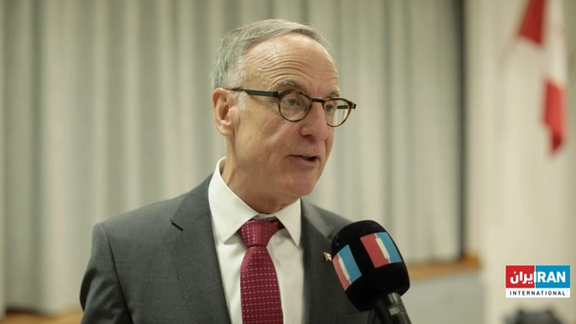
A Canadian lawmaker has told Iran International that Ottawa needs to have a coordinated front against the atrocities of the Islamic Republic and the IRGC, both inside Canada and abroad.
Parliamentary Secretary to the Minister of Foreign Affairs Rob Oliphant told our correspondent that Canada would designate the entirety of Iran’s Revolutionary Guard as a terrorist organization if it was easy and effective to do.
He added that the quickest action the Canadian government can take is limiting the activities of the Islamic Republic “through both the immigration act as well as through the special economic measures act that targets sanctions on those in the IRGC who are most directly responsible for the atrocities which they are committing on behalf of the regime.”
Oliphant maintained that Ottawa plans to sanction somewhere around 10,000 former and current IRGC officers who are the most complicit in atrocities, banning them from coming to Canada or expelling them if they are in the country.
Oliphant added that “We are watching, and we have been absolutely committed to making sure that we get the right people out of the country and not allowed into the country because no one should be able to take advantage of the fact that they’ve been part of the regime; they’ve been part of the murderers, part of the detentions, part of those atrocities.”
In October, Prime Minister Justin Trudeau said Canada has designated Iran's IRGC leadership, adding that “we will restrict financial transactions with the Islamic Republic of Iran associated with the IRGC and the proxies that support them. These actions are some of the strongest measures anywhere against Iran.”
The West on Monday stepped up pressure on Iran over its crackdown on protests and arms supply for the Russian invasion of Ukraine as the US, the European Union and United Kingdom imposed fresh sanctions on Tehran. However, the EU stopped short of designating the IRGC a terrorist outfit, as the European Parliament had voted last week to urge the block to do.
The Canadian official noted that “We are in conversation with other countries to make sure we do it well and we do it as quickly as possible.”
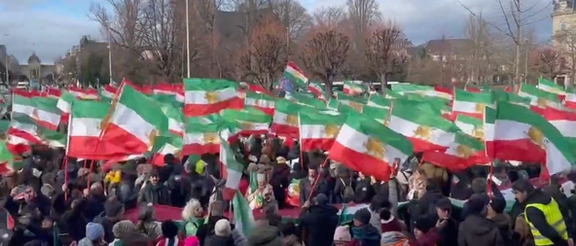
Members of the European Parliament as well as Iranians have called on European politicians to declare the IRGC as a terror group, as it was responsible for leading most of the security forces who killed, maimed and arrested protesters. The issue of Europe listing the IRGC emerged in recent weeks as the Iranian regime has killed more than 500 people during popular protests that started in September, after the death of Mahsa Amini in hijab police custody. Many European officials, including EU Foreign Policy chief Josep Borrell, believe that the move is legally complicated and would obstruct ways to negotiate the revival of the 2015 nuclear deal.
In response to a question about the activities by supporters of the Islamic Republic against the Iranian diaspora in Canada, Oliphant said, “I hear the stories of people who have been harassed, and intimidated; people who feel that there are people who are working for the regime in Canada.”
“What we need is a concerted whole-of-government effort because it’s policing, it’s intelligence, it’s foreign affairs, it’s defense; it’s a series of different people involved in these sorts of decisions. We need to have a one place where people can take their concerns when they have been intimidated, harassed... those things need to be investigated. We need to find out whether Canadian laws have been broken and move ahead. It’s too complicated right now. People don’t know who to call.”
Calling on the Canadians to “go to the local police” if they feel any kind of threat, he added that “There should be one place where people can go to lay a complaint, bring evidence, show it and then it can be investigated. We have the resources now to do it. We just need to put it in a place for public safety particularly by making sure all branches of the government get this work done.”
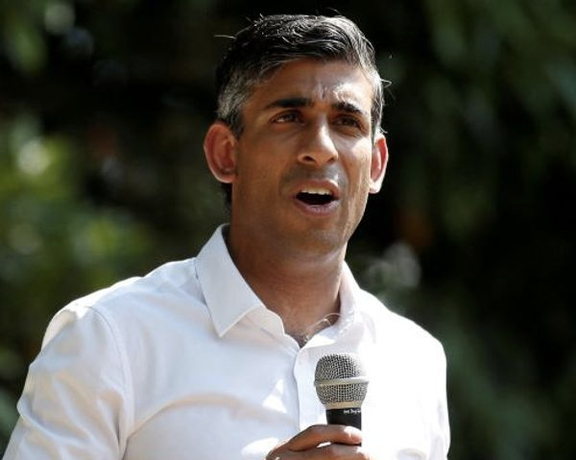
British Prime Minister Rishi Sunak has called on Iran to provide answers about the execution and burial of British-Iranian dual national Alireza Akbari earlier this month.
"The regime is prolonging the suffering of the family and it is sadly typical of that disregard for basic human dignity," Sunak told parliament. "Iran must now provide answers about the circumstances of his death and his burial."
Iran said January 14 that it had executed Alireza Akbari aftersentencing the former deputy defense minister to death on charges of spying for Britain.
"Alireza Akbari, who was sentenced to death on charges of corruption on earth and extensive action against the country’s internal and external security through espionage for the British government's intelligence service ... was executed,” said Mizan website which is affiliated to Iranian judiciary.
The report accused Akbari, arrested in 2019, of receiving 1,805,000 euros, 265,000 pounds, and $50,000 for spying.
Britain called the execution a barbaric act immediately after Iran’s announcement and said it would not go unpunished.
London imposed a fresh round of sanctions on Iranian officials earlier this week.
Akbari was a close ally of Ali Shamkhani, now the secretary of Iran’s Supreme National Security Council.
A source close to the Islamic Revolutionary Guard Corps earlier provided documents to Iran International showing that accusations against Akbari and his death sentence were aimed at weakening Shamkhani’s position in the clerical regime.
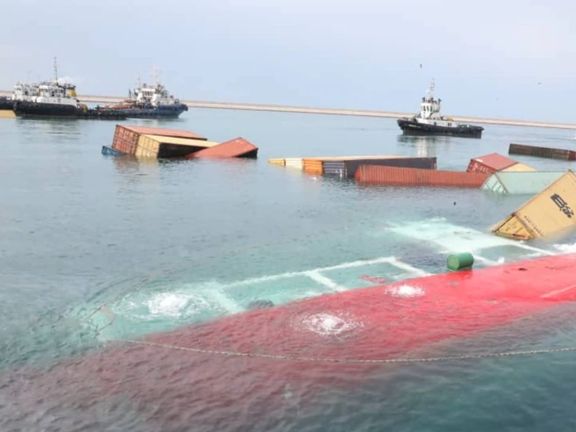
Iranian state media say a Tanzanian-registered cargo ship has sunk Tuesday at a dock in the southern Iranian port of Assaluyeh on the Persian Gulf.
IRNA news agency reported that the vessel named Anil overturned because containers being placed on it were configured incorrectly.
Iranian Ports and Maritime Organization says rescue forces were immediately dispatched and all 12 crew members of the vessel were rescued.
No further details have been published about the cargo of the Tanzanian-flagged ship.
Iran and Tanzania have less than $100 million in trade per year. Tanzania Imports from Iran totaled $11.51 million in 2021, according to the United Nations COMTRADE database on international trade.
Iranian officials claim the Islamic Republic has exported 2.2 million tons of non-oil products valued at one billion dollars to African countries from March 21, 2022 up to December 31.
Iran’s imports and exports have slowed down due to banking and oil sanctions imposed by the United States after President Donald Trump in 2018 withdraw from the 2015 nuclear deal between Tehran and world powers.
The Biden Administration appears to be more resolute in enforcing US sanctions, with designating individuals and third-party companies that are involved in one way or another in doing business with sanctioned Iranian entities.
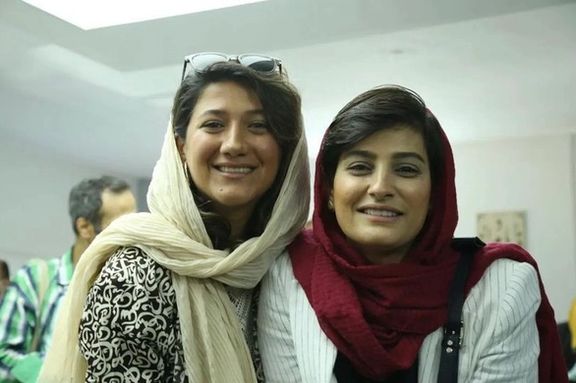
Iranian Journalists Association has published a new list of two dozen journalists who are still in detention after widespread arrets during antigovernment protests.
The Committee to Follow up on Situation of Arrested Journalists has prepared a list of these people saying at least 24 journalists are still under arrest.
Based on official and unofficial reports, the association says almost 100 journalists have been arrested or summoned since the beginning of anti-regime protests in mid-September, and some of them released on bail.
Elaheh Mohammadi and Niloufar Hamedi, who published the news about the death of Mahsa Amini in police custody for the first time, are among the ones behind bars.
The committee also noted that it will soon publish a separate list of the names of journalists who have been temporarily released on bail.
Meanwhile, the reformist Ham-Mihan daily in a report on Wednesday said large bails are set for the temporary release of the detained protesters.
According to this report, the bail set for journalists was usually between 30 to 40 thousand US dollars, an astronomical sum for most Iranians.
In the past weeks, a number of detained journalists received heavy jail sentences, including Ehsan Pirbornash, who was sentenced to 18 years in prison.
In its 43-year history, the Islamic Republic has arrested hundreds of journalists, and many have been killed inside and outside prisons. The regime keeps tight control over all print media and has a monopoly over radio and television. It also tightly censors Internet content by blocking thousands of websites and major social media platforms.
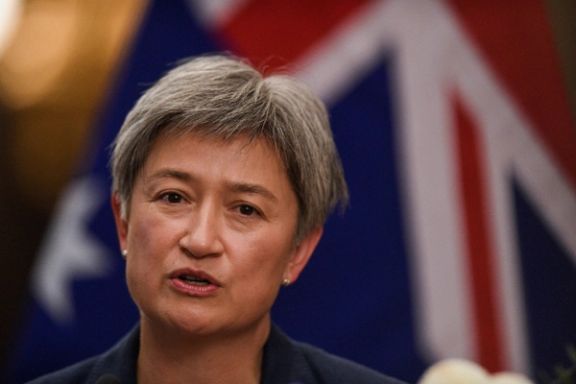
Australia has expressed deep concern over Iran’s "interference" in the country's affairs, including "in person and online harassment" of Australian citizens.
A spokeswoman for Foreign Minister Penny Wong told the ABC, “The Australian government is deeply concerned by reports of foreign interference, including the harassment and intimidation of Australians online and in-person".
"We have raised our concerns about foreign interference directly to the Iranian regime in no uncertain terms," said the spokesperson who did not want to reveal her identity.
"Australia will continue to work domestically to keep Australians safe from foreign interference and with our like-minded partners to apply pressure on the Iranian regime over its egregious human rights abuses."
She also noted that Australia has been integral to building pressure internationally and was at the forefront of efforts to remove Iran from the Commission for the Status of Women.
Based on a report tabled in parliament, ABC reported that Iranian Revolutionary Guard-affiliated elements have launched targeted cyber-attacks on Australian organizations, with the aim of using the data obtained for extortion.
“The IRGC-affiliated actors are actively targeting a broad range of entities, including entities across multiple US critical infrastructure sectors as well as Australian, Canadian, and United Kingdom organizations,” the report says.
The report suggests IRGC agents often operate under the auspices of Najee Technology Hooshmand Fater LLC, based in Karaj, Iran, and Afkar System Yazd Company, based in Yazd, Iran.